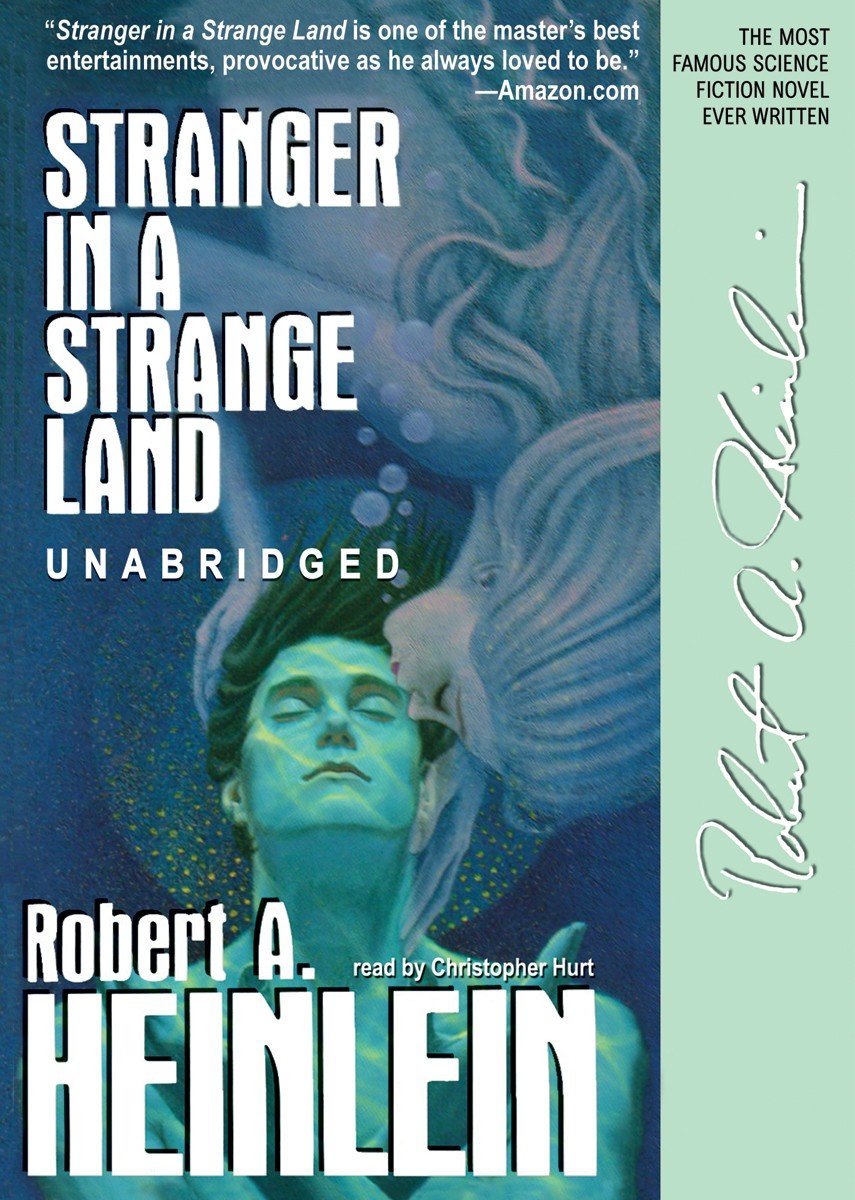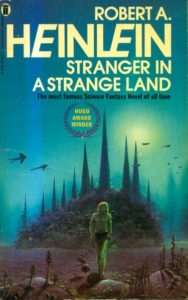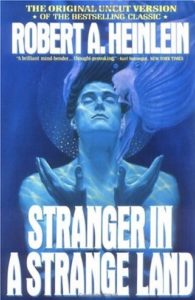 This year I resolved to read more classic science fiction and fantasy, hopefully making a dent in that stack of books I really should have read by now. Mostly because they should be good books, but also to be better informed about my genre and its history. I decided that this meant reading six science fiction and six fantasy books written before 1980 by authors that were completely new to me.
This year I resolved to read more classic science fiction and fantasy, hopefully making a dent in that stack of books I really should have read by now. Mostly because they should be good books, but also to be better informed about my genre and its history. I decided that this meant reading six science fiction and six fantasy books written before 1980 by authors that were completely new to me.
Since I feel weird saying I’m “reviewing” giants like H.G. Wells and T.H. White, let’s just say these will be my reactions to books that have shaped the science fiction and fantasy genres in one way or another.
Up this month is Stranger in a Strange Land by Robert A. Heinlein, first published in 1961.
Stranger in a Strange Land (1987)
Written By: Robert A. Heinlein
Genre: Science Fiction
Pages: 610 (Kindle)
Publisher: Ace
Why I Chose It: I’ve heard about Stranger in a Strange Land for a while so it seemed only natural to put it on this list. Plus, I really liked the idea of seeing the first person to experience Earth as a second home.
The premise:
Raised by Martians on Mars, Valentine Michael Smith is a human who has never seen another member of his species. Sent to Earth, he is a stranger who must learn what it is to be a man. But his own beliefs and his powers far exceed the limits of humankind, and as he teaches them about grokking and water-sharing, he also inspires a transformation that will alter Earth’s inhabitants forever…
Very Minor Spoilers
Discussion: I might as well start with the fact that this was not what I was expecting at all. Maybe that’s my fault, and I shouldn’t blame the book for having made assumptions. But to be fair, Stranger in a Strange Land started off with a fairly detailed description of the colonists sent to Mars, how they were chosen, and their interpersonal relationships, and then it immediately presented an intriguing mystery. For example, what the heck happened to them?
But don’t get your hopes up like I did. That setup has very little to do with the rest of the book.
 After the first chapter it became a pretty heavy handed political sci-fi, and I thought, okay, I guess I’ll just have to roll with it. I assumed we would at least see the Man from Mars interacting with Earth and struggling with his Martian heritage, and there was some of that, but it was much more esoteric than practical. In fact, I couldn’t figure out why Heinlein made Michael human at all. I think this story would have been almost exactly the same (and probably less weird) if he’d been entirely alien. Mike’s humanity was buried so deep and played so small a part in the plot that it might as well have not existed.
After the first chapter it became a pretty heavy handed political sci-fi, and I thought, okay, I guess I’ll just have to roll with it. I assumed we would at least see the Man from Mars interacting with Earth and struggling with his Martian heritage, and there was some of that, but it was much more esoteric than practical. In fact, I couldn’t figure out why Heinlein made Michael human at all. I think this story would have been almost exactly the same (and probably less weird) if he’d been entirely alien. Mike’s humanity was buried so deep and played so small a part in the plot that it might as well have not existed.
Then exactly half way through the book the story took a drastic left turn. When I described this to a friend as half political sci-fi and half social commentary on an acid trip, she laughed and said, “that sounds like the sixties”. Which I thought was a pretty good way to describe Stranger in a Strange Land. Sounds like the sixties.
The dialogue was rife with sexism and racism that felt very appropriate for the time it was written and not at all appropriate for whatever nebulous future Heinlein was imagining. One of the female characters herself claims that nine times out of ten it’s the woman’s fault if she gets raped (I about gave up right there). And a Muslim character is “affectionately” nicknamed Stinky.
And I’m pretty sure I was supposed to be happy that the main character went off and started a cult full of free love, open marriages, and nakedness (seriously, naked people everywhere). Cast off your jealousy as a harmful unneeded human trait and you’ll be happy forever, which is of course the ultimate purpose of humanity.
But among these happy naked people, homosexuality was addressed and then discarded out of hand. There were hints of lesbianism, but men just did not touch each other, they did not desire each other, because this free love cult wasn’t like that, okay? Whatever your belief about sexuality, love, and marriage (I’ll freely admit that I thought Mike’s way of life was deeply flawed), the biggest problem here was the lack of internal consistency and the inability to imagine a future different from the present.
 It made me wonder sadly if all science fiction will be bound by the strictures and hang-ups of its time, no matter how hard the author tries (or doesn’t try) to escape it.
It made me wonder sadly if all science fiction will be bound by the strictures and hang-ups of its time, no matter how hard the author tries (or doesn’t try) to escape it.
In the end, if there was a moral to this story, I completely missed it. Even though one character was clearly there to lecture us on the proper way of thinking and the rest were just there to say “What?” and “You’re so wise, Jubal.” That particular character’s sexism made it hard for me to accept anything he said as wisdom. And Mike’s teachings just felt so creepy I couldn’t get behind any of them. Even at the end when the last hold out was converted, I was like “Welp, we’re all doomed.”
In Conclusion: Once Heinlein set up the mystery of Mars and the first colonists, I really wanted to read that story. I wanted to know what happened up there, how they all disappeared, and why Mike was raised by Martians. But that just wasn’t the story Heinlein wrote. So, I ended up disappointed. If you’re looking for scathing political/social/religious commentary on the human race and you don’t mind – or like – the story it’s wrapped up in, you’ll probably find much more to enjoy here than I did. I just kind of wish I had my weekend back.
Next month I’ll be reading The Jewel in the Skull by Michael Moorcock. Who wants to tackle it with me?

No Comments